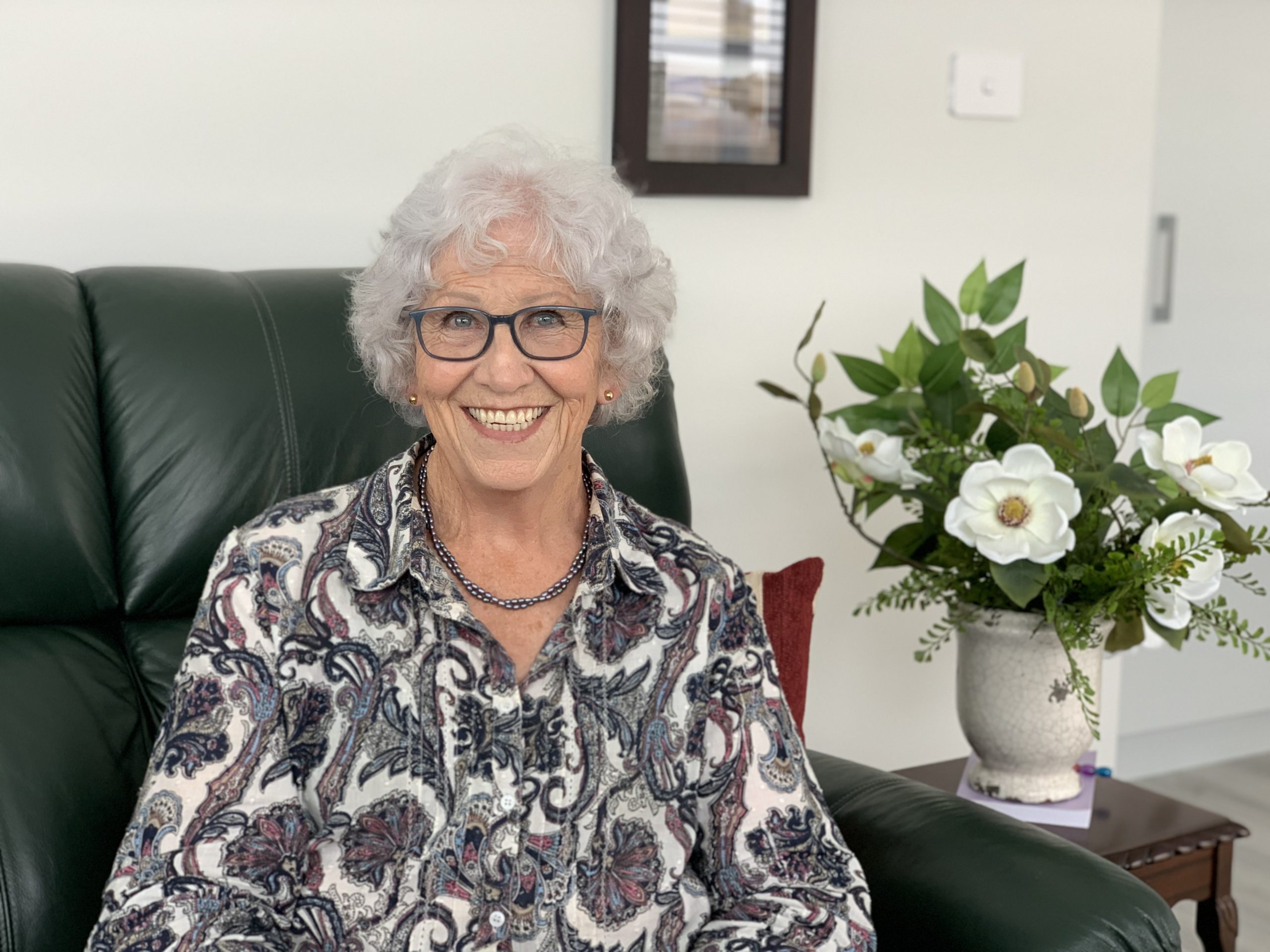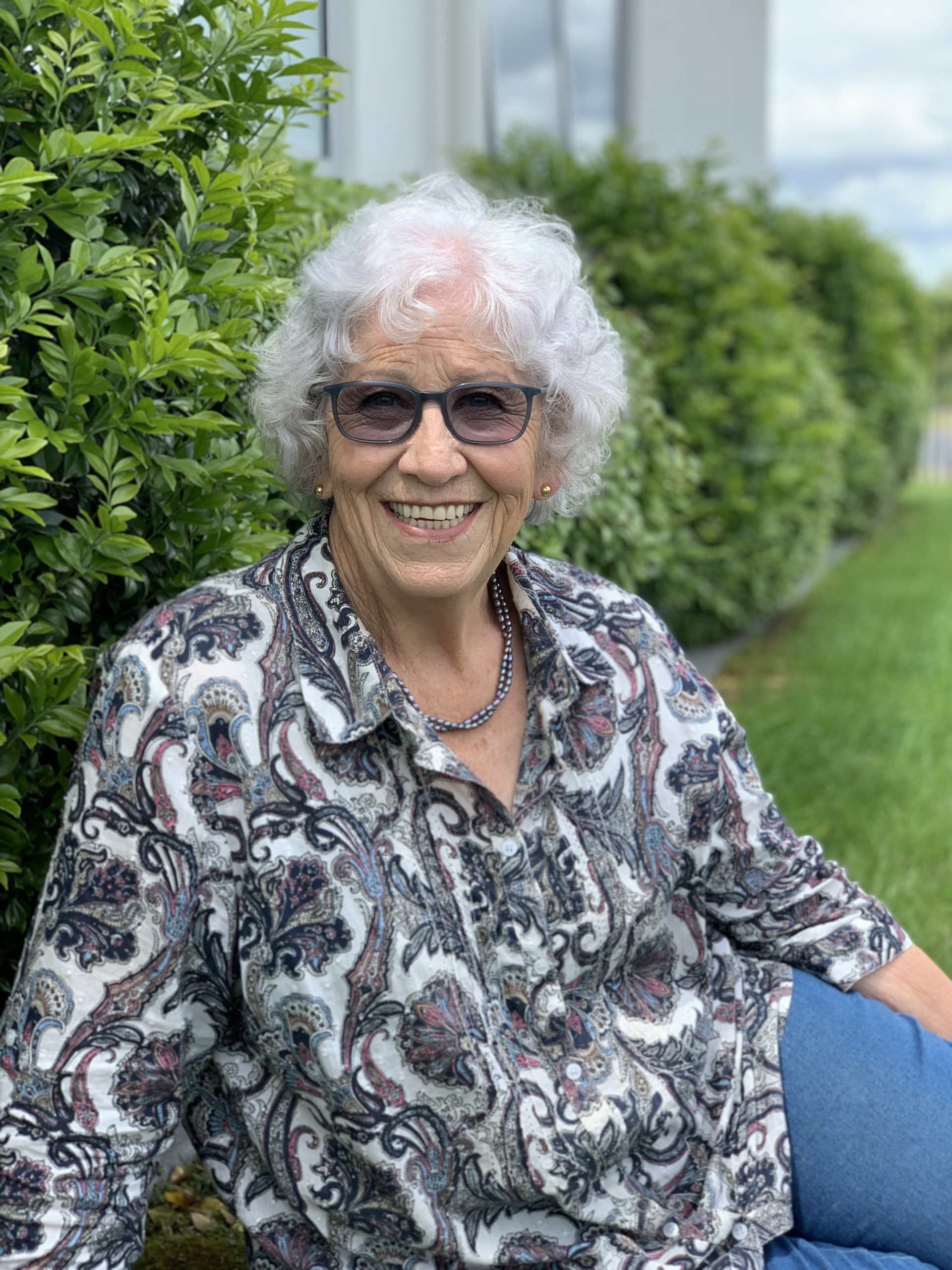“What really impressed me was that the doctors would talk to my sister about what was working, what wasn’t working, what they thought could work better. And then gave her the decision. Did she want to go ahead with that change? And after the doctor had left one time, we looked at each other and she said to me, ‘wow, I have got so much information to think about.’ I felt that was wonderful because she felt that she was in control.”
When you are ill and dying, a lot of things are taken away from you, however, Waipuna Hospice believes you can still have ownership over decisions.
Annamaria’s experiences demonstrate the principles and values of Waipuna Hospice services. Our team ensures and encourages a sense of dignity, as the emphasis is less on the disease and more on the person. The end-of-life care is concerned not with providing cures but with providing comfort, improving the quality of life for patients, while also informing and supporting the families.
“I was blown away by the caring support given to me as a support for my sister. One day, I was sitting in the little lounge. Suddenly a lady appeared beside me, and I saw she had a counsellor badge on. She said, ‘how are you today?’ I started crying and I could not stop. She was so caring and supportive. It felt like wraparound care for me as a support person – it was amazing.”
Annamaria said this wraparound support highlights the whole culture of Waipuna Hospice, providing comfort. When Annamaria’s sister died, the nurses showed real compassion – they were so genuinely caring and lovely. The counsellor sent a text offering instant support.
“There must have been a lot of other patients at Waipuna Hospice, but I never felt like I was one of many,” said Annamaria. Throughout this process, Annamaria deeply appreciated the support.
Annamaria first heard about Waipuna Hospice five years ago – “one of my precious close friends was diagnosed with terminal cancer and I offered to sleep at the hospice at night. They set up a La-Z-Boy for me so I would go in at night and just cover a couple of nights before she passed away.” Annamaria said the hospice allows you to have a real connection with your loved one in their final moments – easing the difficulty of the grief process.
Annamaria has supported hospice financially for years, and now “it’s become a personal journey, I would encourage anyone to trust hospice – it took the fear away.” Annamaria explains being told someone is terminal comes with grief, sadness, and a really intense sense of denial. “Waipuna Hospice is there to support you but not take over. They are there to care for you and your loved one – always to respect your dignity and give you choices. And as a support person, I really felt that wraparound love, because I wasn’t just sitting on the outside – they were including me. Often when they came in, they would put the seats around so I was included as a support person. We’re all going to die – you may lose control of some things in your life, but you can trust the people who are going to look after you, that they will keep giving you ownership right to the end.”
Dignity is subjectively experienced, and each patient is unique in their requirements. That is why it is important that at Waipuna Hospice, we use an open approach to assess each patient’s needs and aim to meet these accordingly. We use discretion as to what is appropriate when providing care for patients of different ages, cultures and religions. Waipuna Hospice care can increase a person’s dignity at the end of their life because we address each person’s full range of needs and preferences – physical, emotional, social, and spiritual. Hospice maintains patients’ dignity by focusing on their comfort and quality of life.
We don’t have the choice of when we’re going to die, but we all have the choice of everyday things. Life is special – live every moment.

